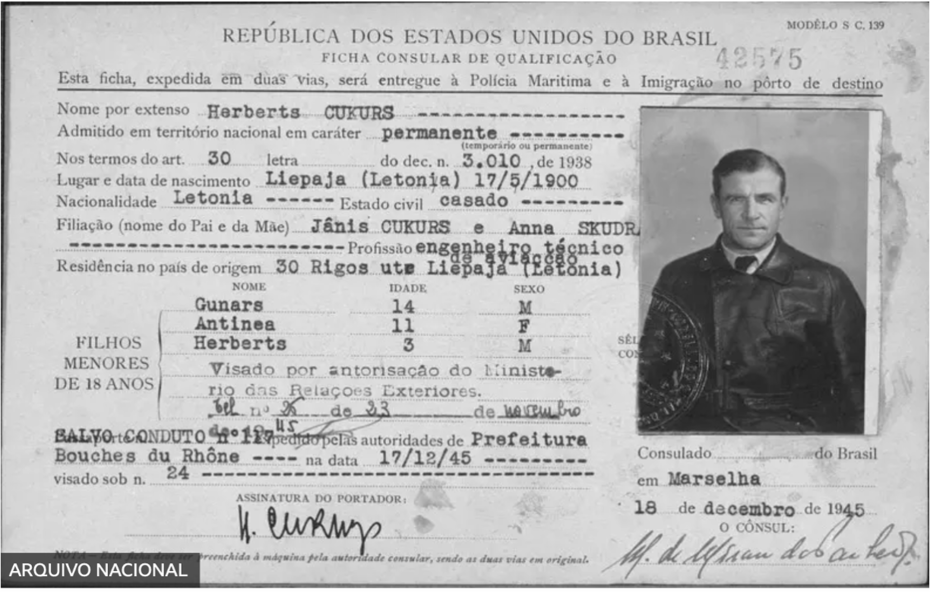Cukurs, the Nazi of Rio's pedal boats
"Look at me! Do I look like an executioner?", said the hardened fifty-year-old with a heavy accent to the reporter from the newspaper O Globo, making it very clear how offended he felt by these unfounded accusations.

The indignant citizen was Herbert Cukurs (*1900 +1965), a European immigrant who had gone to Brazil a year after the end of the Second World War with his wife, three children and mother-in-law, initially settling in Rio de Janeiro. There, he opened a pedal boat rental business on the Rodrigo de Freitas Lagoon and lived discreetly with his family until that winter's day in 1950, when accusations of war crimes against him began to leak out in the Brazilian media.
Cukurs was a famous citizen in his native Latvia. He had been a pioneering long-distance pilot, being hailed a national hero and nicknamed "the Latvian Lindbergh". His skills as an aeronautical engineer allowed him to design, build and repair three airplanes and a bomber, which also made him valuable in the eyes of the Soviet Union, which tried in vain to recruit him. During the German invasion of Latvia in the Second World War, he had enlisted in the Arajs Kommando, a military unit working for the Nazi SS.
On that day in 1950 when the Federation of Israeli Societies of Rio de Janeiro called the press, Rio society listened in amazement to the terrifying testimonies of four Holocaust survivors. In fact, Cukurs was a sadistic SS officer who delighted in murdering children in front of their mothers, raping women and torturing and murdering defenceless men. During the war, he was directly involved in several massacres that have become sadly famous, accounting for the cold-blooded extermination of at least 30,000 Jews.
However, as in those post-war years all international attention was focused on the Cold War, the war crimes committed by several Nazi officers were slow to be verified. Although Brazil had asked various diplomatic offices in England and other countries to check whether the accusations against Cukurs were true, nothing was done. In the meantime, the Latvian executioner moved from Rio to Niterói and then to Santos, eventually settling in São Paulo.
When the crimes perpetrated during WWII turned 20 years old, the nations decreed that these crimes were time-barred and that the guilty would no longer be tried or sentenced. By this time, however, Cukurs felt threatened, as he knew that Mossad spies were now hunting down Nazi criminals in their hideouts around the world and exterminating them.
Although he owned a small passenger plane company in São Paulo, he lived a life of financial hardship. Feeling insecure and threatened, he lived in a house that was more like a fortress. Permanently protected by ferocious guard dogs, his house was surrounded by a high wall topped with coils of razor wire, and permanently swept by the light of powerful guard lights. Despite everything, he showed self-control in his daily life.
In 1965, he was ambushed by a cunning Mossad spy posing as an Austrian businessman. Anton Kuenzle, the fictitious businessman, contacted Cukurs for months on end, beckoning him to set up a lucrative partnership in the field of tourism. The coup de grace was delivered in Uruguay, where the two met to discuss the details of the partnership. His body was left in a trunk with a note informing anyone who found it of the war crimes he had committed. At the foot of the page, the note was signed by "Those who will not forget".
Translated with DeepL.com (free version)
Voltar
